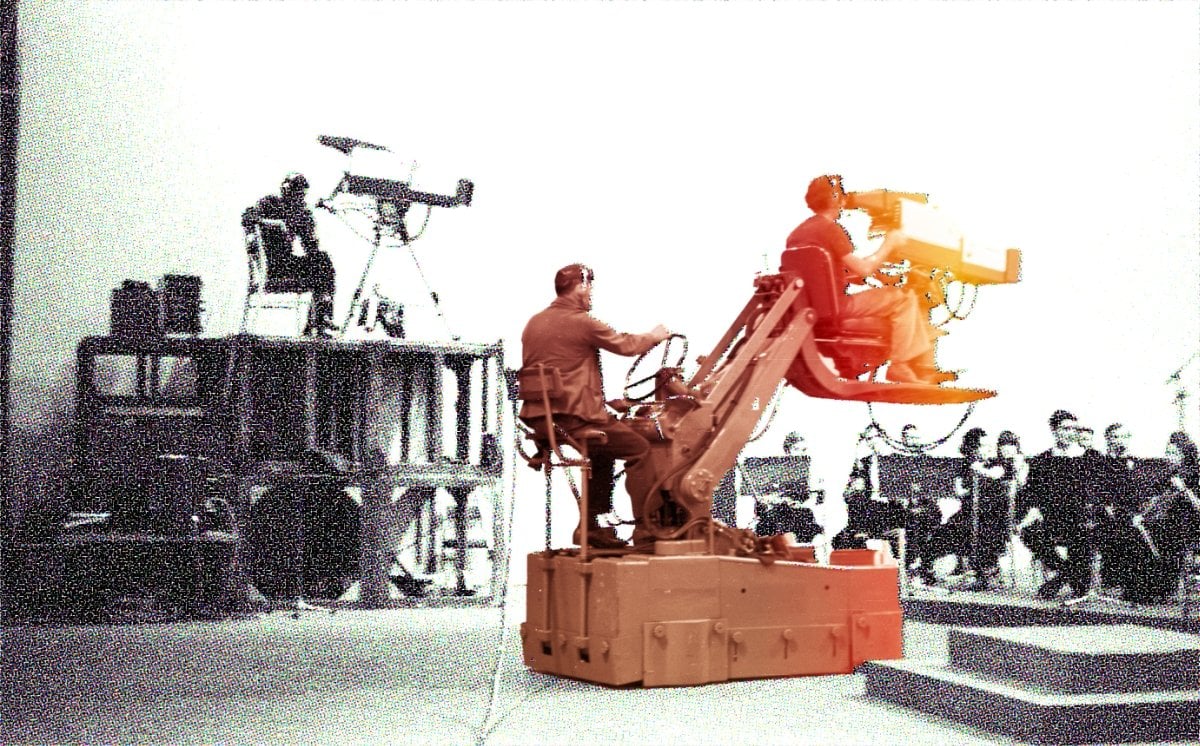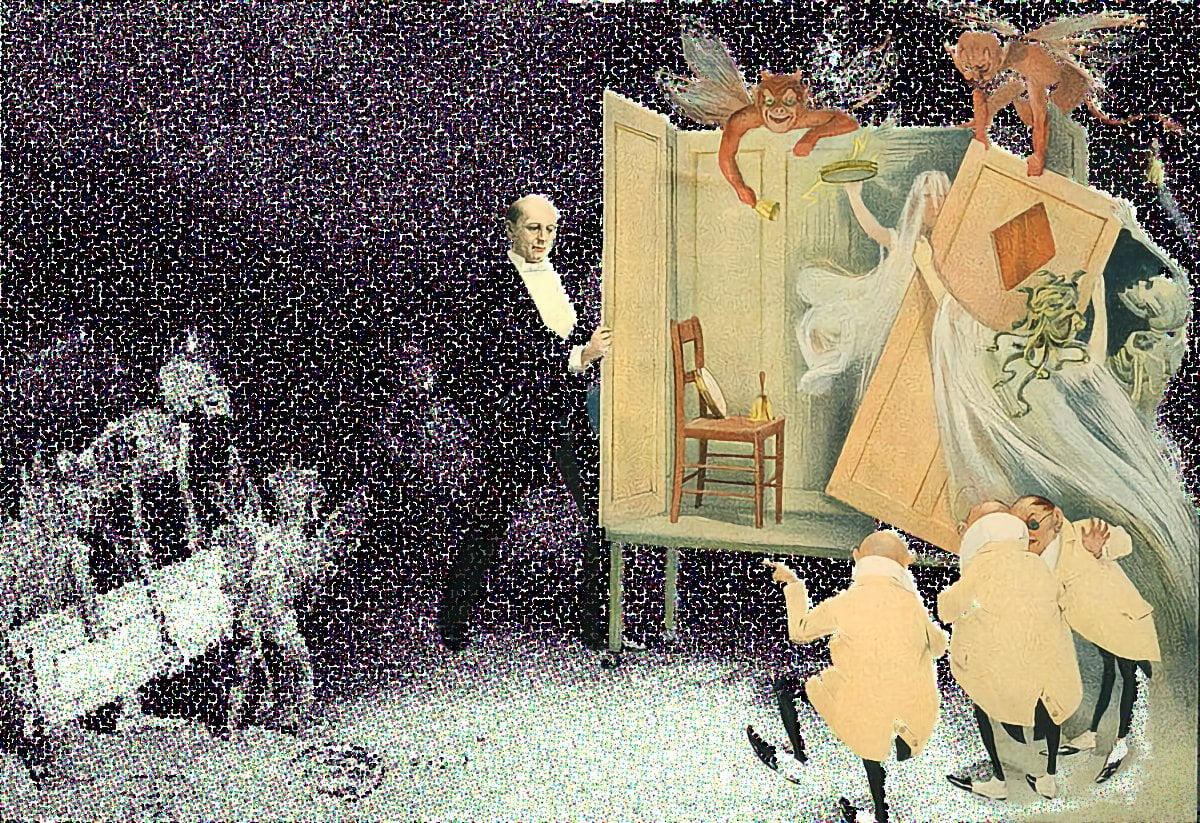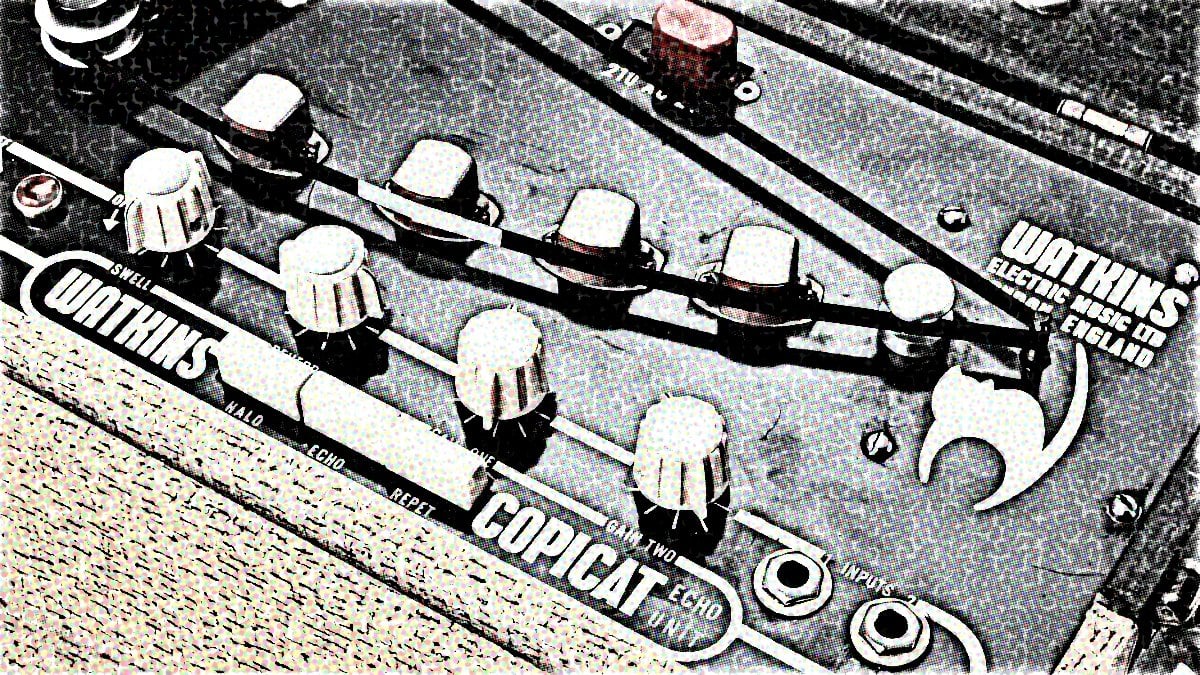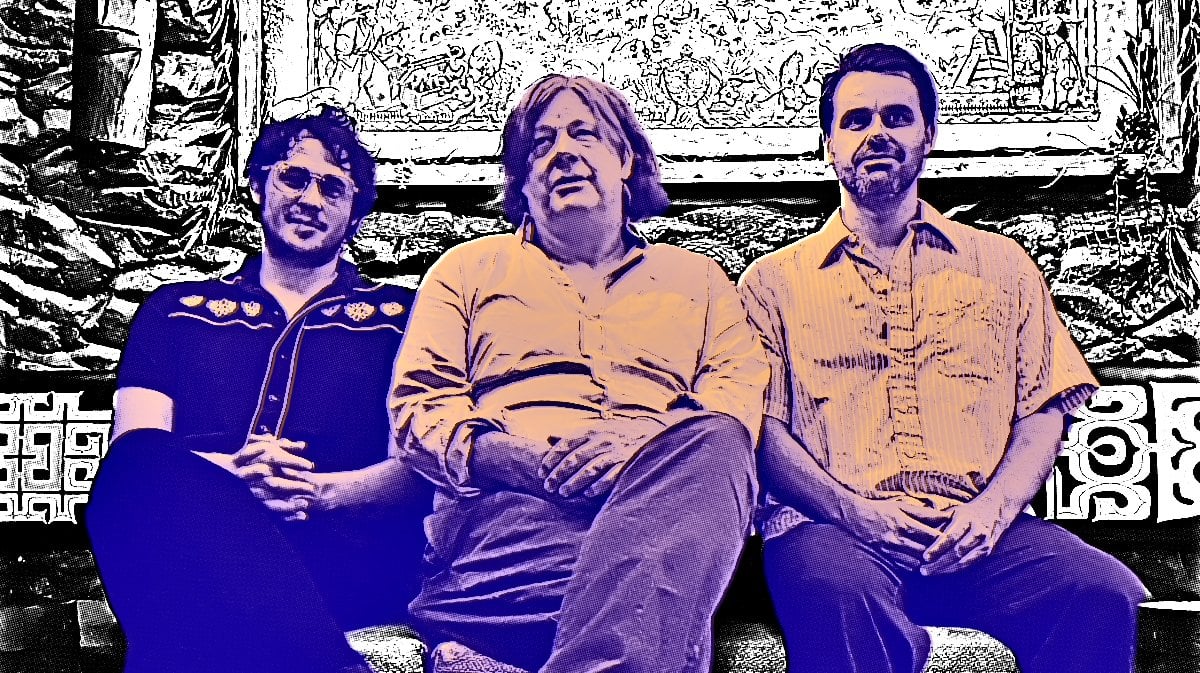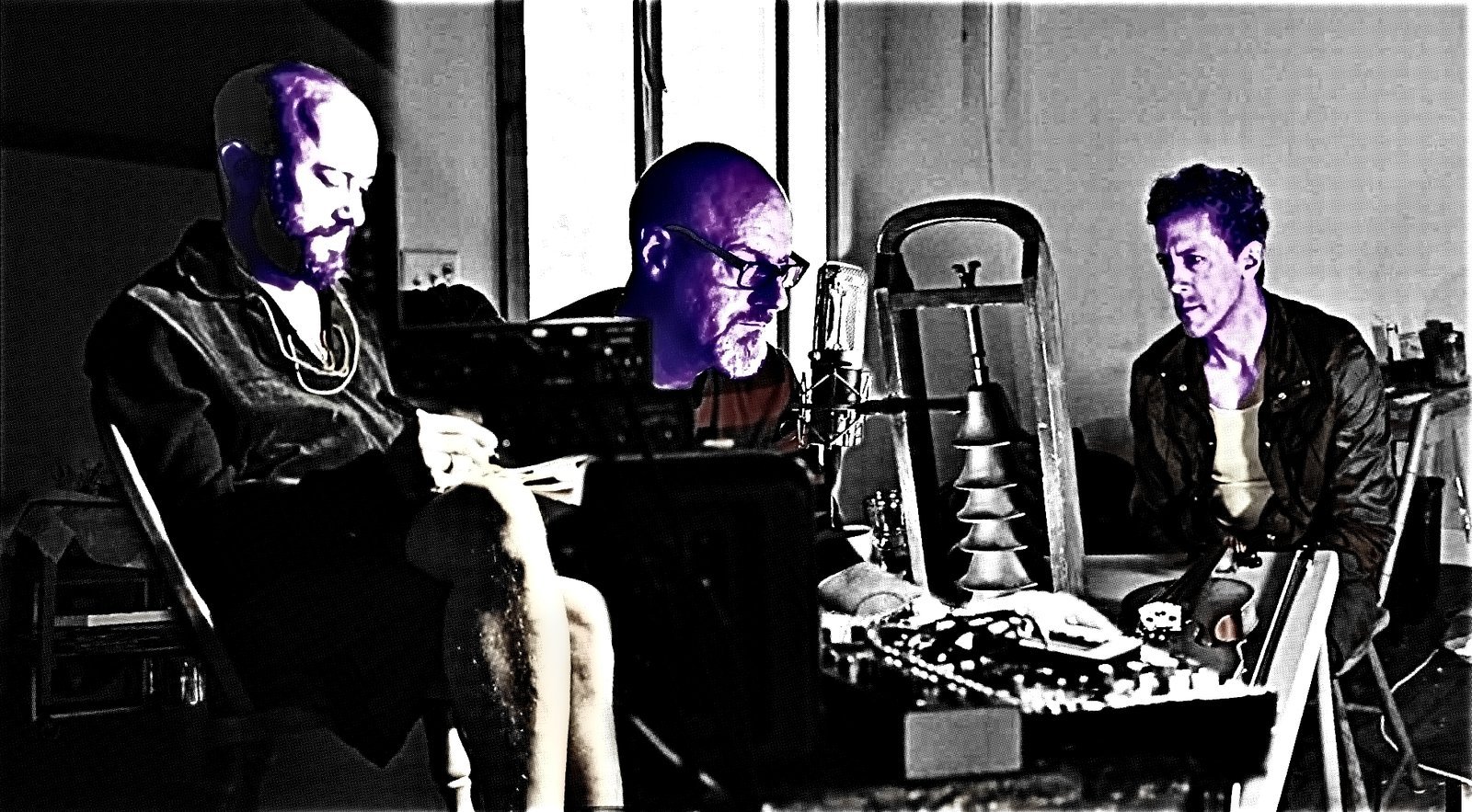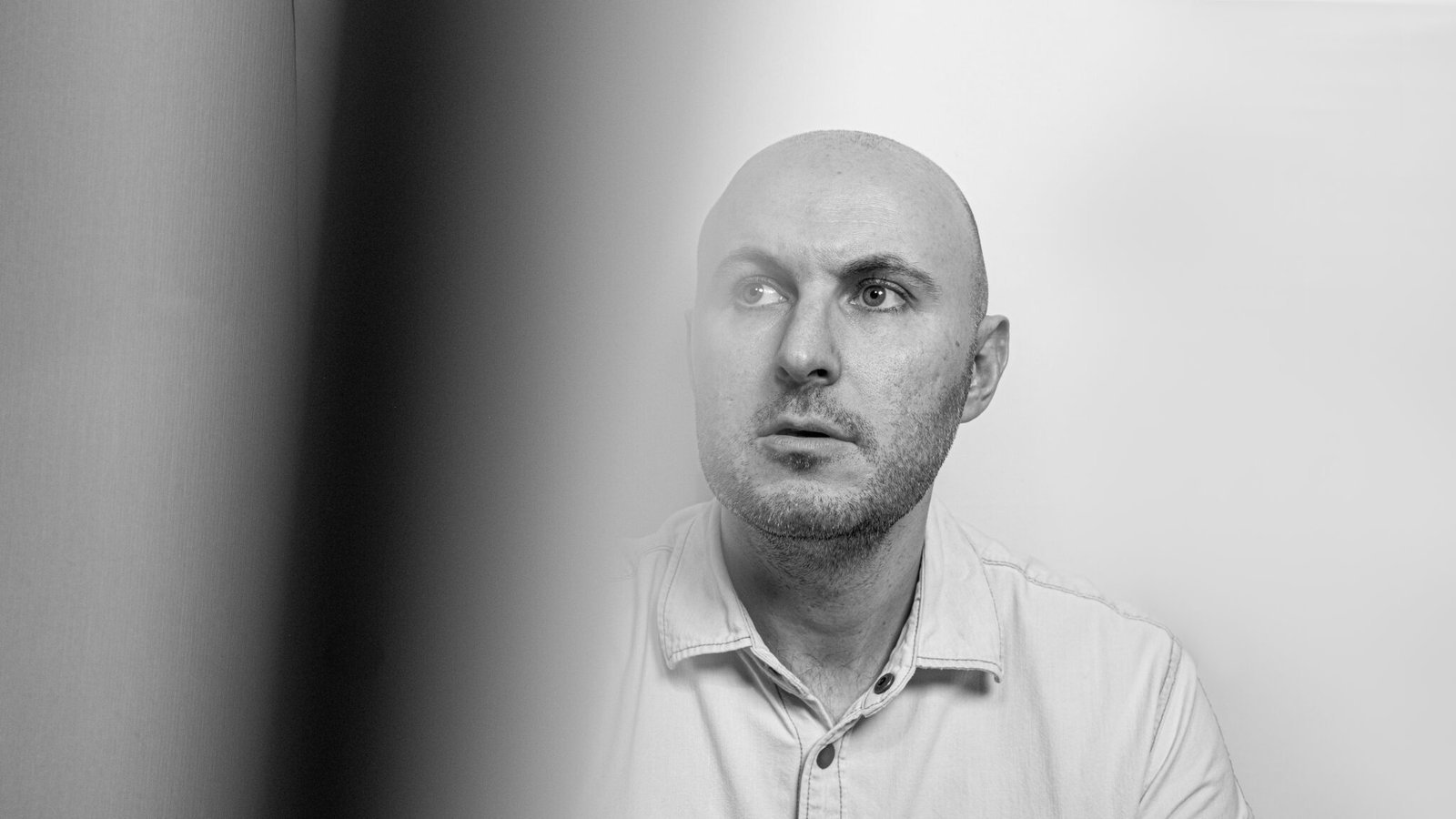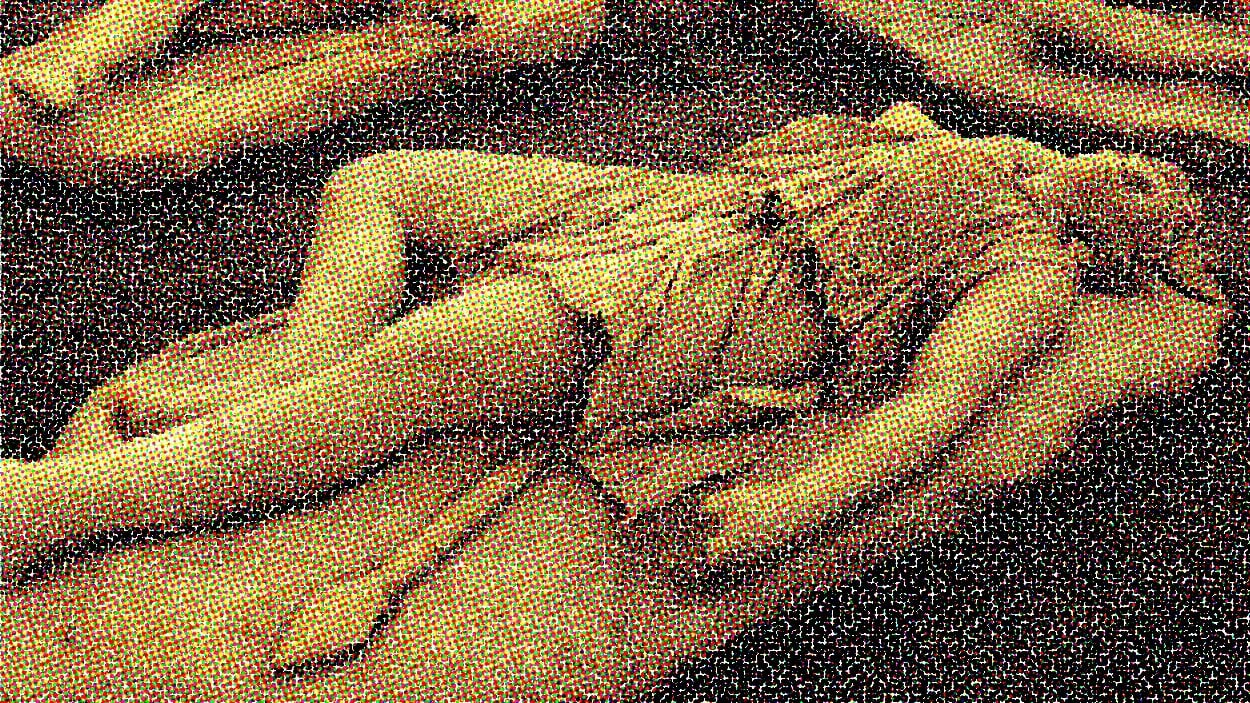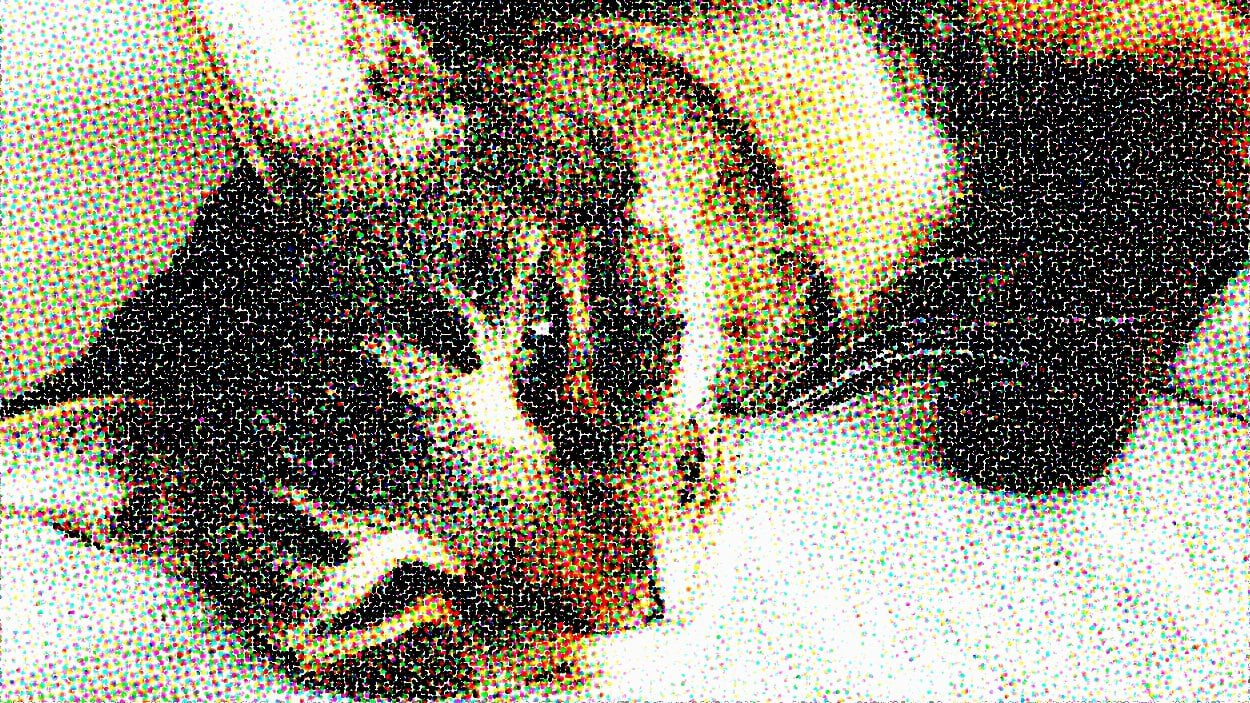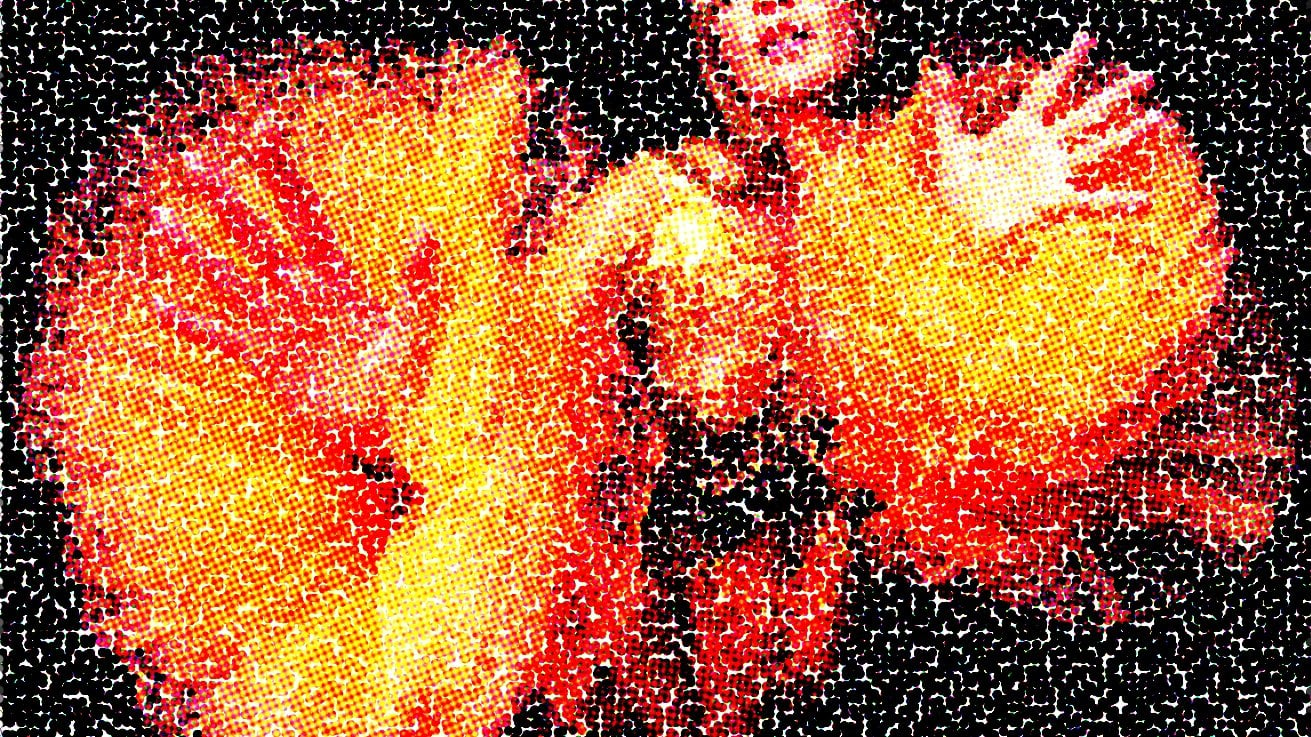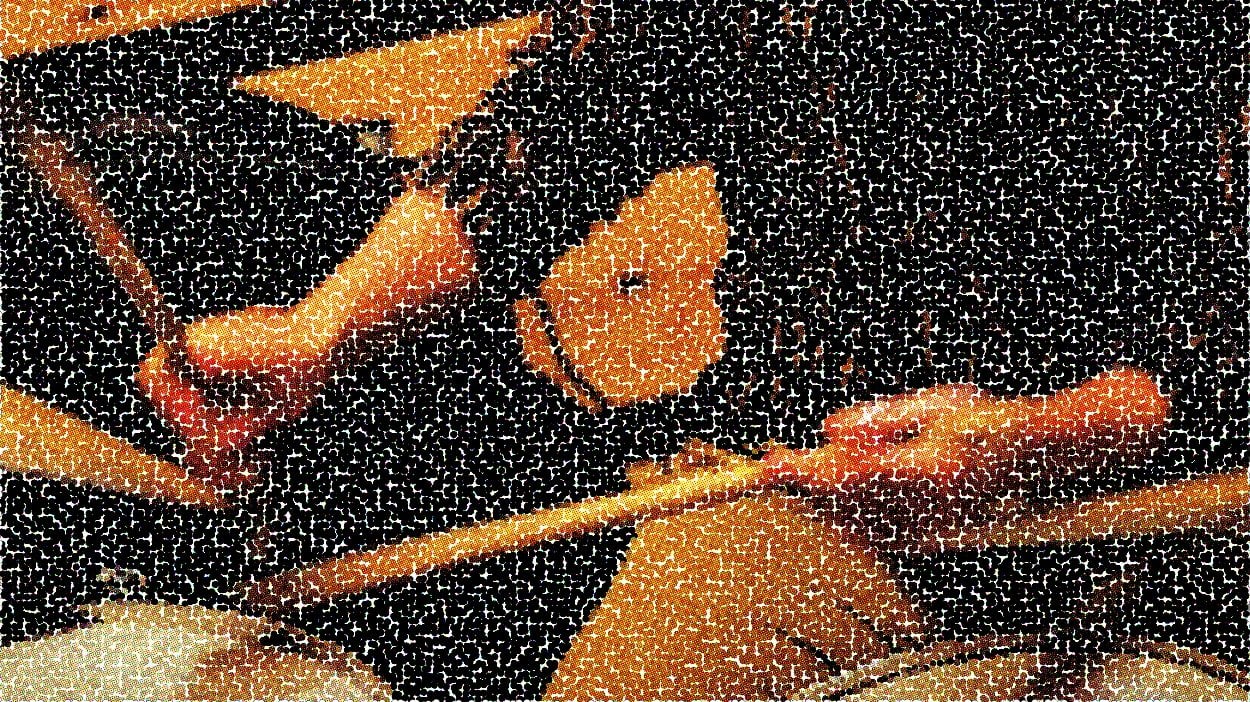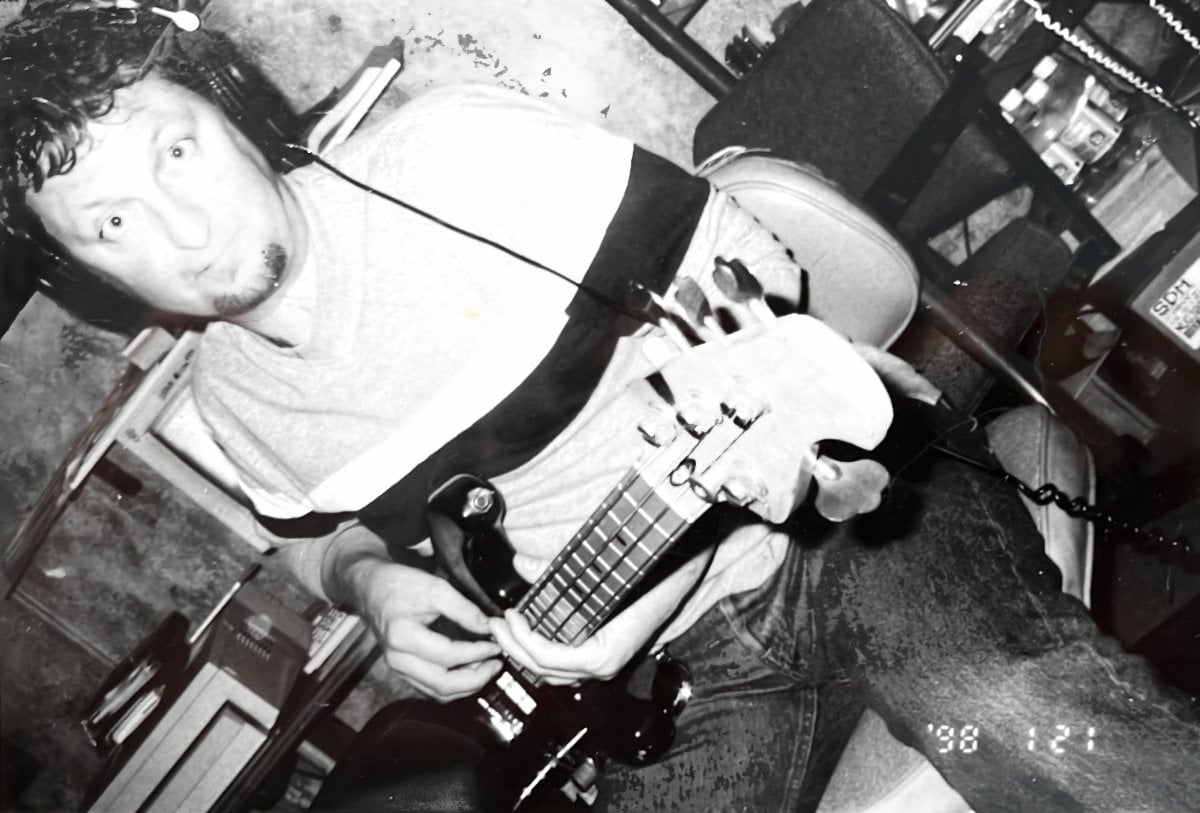
First Encounter, Manhattan, 1991 CMJ Music Festival: My status as a college radio music director was an excuse for attending, but I was also looking for opportunities to promote the shoegazey band in which I was a guitarist. Our singer, also my girlfriend at the time (not advisable), joined me. We heard about a live ‘A&R session,‘ a music industry conference trope that’s probably familiar. Band demos (cassettes!) are put in a box where they are selected randomly, then the initial minute or two of the first song is played for a panel of supposed experts. This panel included several label folk I don’t remember and Dave Allen, representing his young World Domination Recordings imprint.
My band’s demo was in the box, but never got selected. Other demos of varying quality were sampled and lightly praised or gently critiqued. No feelings were hurt, but no one was overly encouraged, though Dave told one aspirant to talk to him after the session. Whether in praise or critique, bands were often compared with much more popular acts. Things were said like, “Your band would appeal to fans of The Pixies,” or whoever was the hot college radio band of that time. Dave did this a few times, too, and it irked the singer in my band. She stood up and yelled at Dave, “Why are you guys always looking for the next whoever? Why can’t music be judged on originality?” I can’t remember Dave Allen’s response as I was too embarrassed to pay attention, but I’m sure it was a dressing down about the realities of the music business.
After the session, we stood outside the room where we met a friend of mine. We’re chatting when Dave walks out of the room and shoots a bemused, perhaps annoyed look in our direction. My friend halts the conversation and says, “Whoa, is that Dave Allen?”
❋-❋-❋-❋-❋-❋-❋-❋
Second Encounter, Eighth Dimension Records: I have no idea how we got on Dave Allen’s radar. This was the mid-90s, and trip hop/acid jazz/electronic music was the bubbling next big thing. I imagine he was hunting for something like that to sign to his World Domination label. I co-owned Eighth Dimension Records, a small label specializing in that stuff. Dave’s second-in-command reached out to us, offered a manufacturing and distribution deal for our label, and we were off to the races.
I think I first met Dave Allen when I opened for Gus Gus in Los Angeles. The Too Pure trio Seely was also on the bill, and more about them later. Dave and I hit it off straight away and hung out while I was still in town. Of course, I was well aware of Gang of Four and Shriekback—very much into the latter’s early recordings, especially—but Dave was so down to earth that it never crossed my mind that I was cruising around L.A. with post-punk royalty.
A few months later, I returned to L.A. for a gig and Dave offered his guest bedroom in Laurel Canyon. Dave had quite a cozy existence there with his wife and young kids. I shot the shit with him over glasses of whiskey on a raised deck overlooking the lush greenery of the Canyon. I remember him pointing out that he was stone-throwing distance to Joni Mitchell’s famous former house. We had a lot in common, especially a love of creative games (like Eno’s Oblique Strategies) and the recording process of bands like CAN.
❋-❋-❋-❋-❋-❋-❋-❋
Close Encounter, Orlando, Florida: Dave Allen had an idea. He would spend a week with us in Orlando and record a project in the small studio I shared with Jon Curtis (a fellow Eighth Dimension partner who released an album on World Domination Recordings as Pimp Daddy Nash). Dave was so impressed with Eric, the drummer from Seely, that he was flown down from Atlanta to participate. Dave and I discussed this much in advance, maybe even that night on his deck, and decided we’d record an album the way CAN did: long, improvised jams that would get overdubbed and turned into songs in the edit.
Dave and Eric took care of the rhythm section, of course, while I played guitar, and Jon manned the mixing board while contributing some synths. Once all the instruments were set up and mic’ed in the cramped second-floor office space, we figured we needed to warm up. “What shall we play?” someone asked. At that moment, Dave breaks into the bass line for “Not Great Men.” I still remember the ‘what is happening?’ look Eric gave me, which I probably reflected back to him. Then we awkwardly jammed with Dave Allen to “Not Great Men.“
We recorded some fun grooves and improvisations throughout the week, but I don’t think we felt particularly impressed. The edit is where it will happen, right? Dave grabbed all the ADAT tapes from our sessions (it was the late ‘90s) and went back home to listen and think about next steps. “I’ll come back and we’ll do more,” he promised. He was so sure of this that he left his bass guitar—the one you see him playing in live photos of Shriekback with FACT painted across the front—as he didn’t want to risk flying with it two additional times.
I don’t know the exact ins and outs, but World Domination Recordings was made possible by some wealthy Japanese investor. After the Japanese market crash of 1998, World Domination Recordings was in distress and eventually shuttered. Dave Allen had a lot to deal with and never returned to Orlando. His bass guitar sat in our studio for at least a couple of years and, with Dave’s permission, made appearances in my recordings. You can hear me playing it on my song “Asa Nisi Masi“ and my remix of Tetris’s “Two Hours.” That bass sounded so fucking good.
Soon after, Dave moved to Portland. I regularly played in Portland, but Dave would often be out of town. Our schedules hardly ever coincided. One of those times, I called Dave to tell him that I was coming to Portland, and once again, he gave me the bad news that he would be gone on business. However, “My kid has expressed interest in playing bass. Can you bring it with you?” I nervously travelled by air with this hallowed object and left it with a Portland-based friend to deliver. My friend was also a Shriekback and Go4 fan. When Dave returned, my friend showed up on his doorstep expecting a quick hand-off. Of course, Dave Allen invited him into his house and they had a cup of tea and a nice chat.
❋-❋-❋-❋-❋-❋-❋-❋
Final Encounter, Brooklyn, Mondo.NYC: It’s November 2019, right on the edge of COVID-times, and I’m attending the Mondo.NYC music business conference. It’s late afternoon, most of the seminars have let out, and the bar scene at the conference site hotel is crowded. I’m talking with a friend and keep glancing toward the bar. Can it be? I haven’t seen him in over a decade. I wander to the bar and “Dave?” He responds with that sly grin of his: “I was wondering how long it would take you to come over.”
There we are for over an hour, catching up, Dave had plans. He told me about reclaiming the Gang of Four masters from Warner Brothers—several months later, they would reappear on Matador. And he told me about playing live again, that he found some incredible young musicians (he was always on the lookout) and wanted to mix them in with Hugo and Jon from his band of yore. The guy was jovial, hopeful, and not jaded in any shape or form. As Dave always did, he made me feel good and inspired about my own plans. After saying our warm farewells, Dave and I exchanged emails for a few months, and then time evaporated in a pandemic haze.
❋-❋-❋-❋-❋-❋-❋-❋
Part of being younger is believing that some people will be around forever. As we age, that illusion is shattered by the stark inevitability of losing our heroes, mentors, friends, and loved ones. Dave Allen was one of those who seemed like a constant. Though primarily tied to my past (and my more creative, ambitious youth), I always felt I could just show up on Dave’s doorstep for a drink and a chat if I wanted. That may have been true, and it’s a shame that, in these past several years, I never did.
Dave Allen’s generosity, confident opinions, and artist-first ethos left a pronounced mark on me. I have little doubt I’d be in a different place and with different values for navigating the wretchedness of the music industry without his influence and friendship.
Here’s where I’ll throw back to that Gang of Four song we jammed on together and make the bad pun that, to me, he was one of the ‘great men.’ I can almost see him wincing and chuckling with mocking disapproval. Strum on, Dave Allen.
Jon Curtis also wrote about his memories of Dave Allen on his Sonic Wasteland blog. I also suspect he took most, if not all, of the photos accompanying this article.





